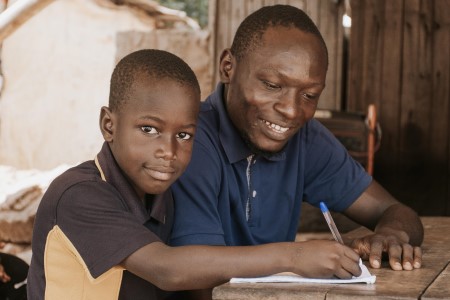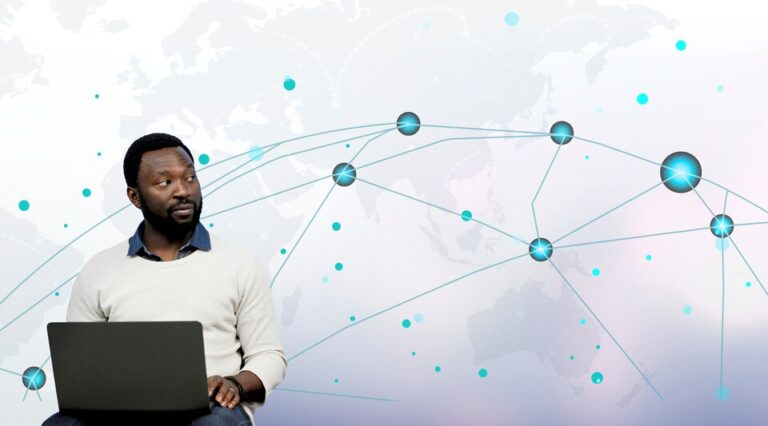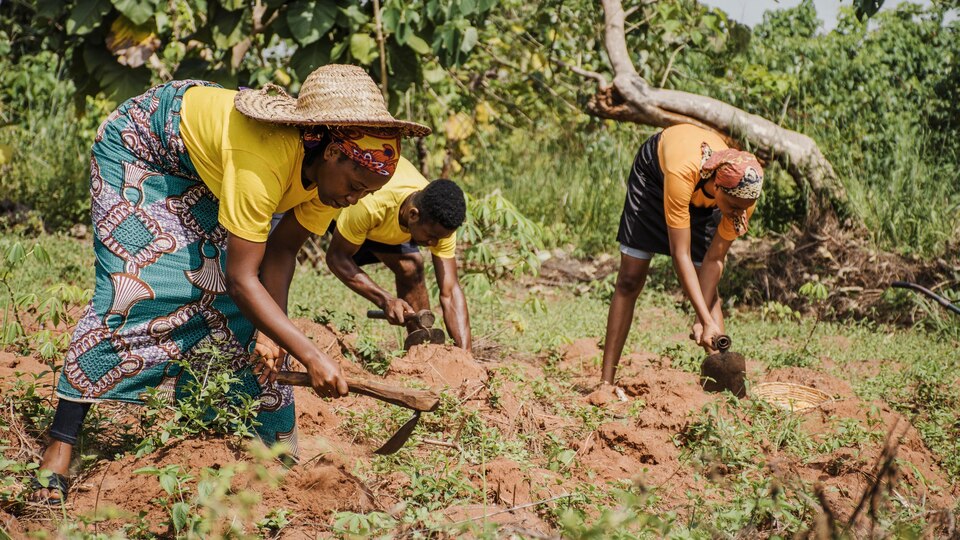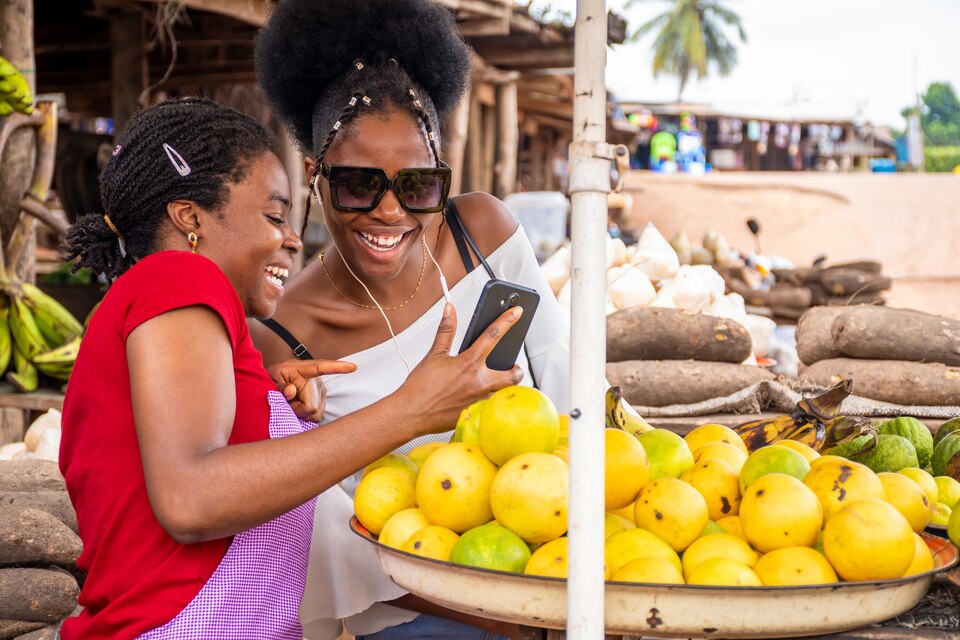BUSINESS OPPORTUNITIES




Business Opportunites in Africa.
Africa is a fast-growing continent, and many international investors recognize that there is enough of money to be earned there. There are many opportunities in Africa that many investors and companies are unaware of, particularly given the continent’s tiny but underdeveloped economy.This is not to say that Africa has not evolved, as there are several countries that have undergone economic reforms and are one of the best places to invest when compared to other countries in other regions of the world, especially because the returns can be much higher than those found in the developed world.According to data, African nations produced a 14 percent yearly return on investment, with Africa home to nine of the world’s fifteen fastest growing economies. The African continent is not only rich in farmlands, but also in people and natural resources, and as the world’s population grows, these resources will become more important15 Untapped Business Ideas In Africa 2023Here are 15 innovative and untapped business ideas and opportunities in Africa by 2023.
Data Storage &Cyber-security In Africa.
Every year, cybersecurity breaches cost African companies more than $3.5 billion. Because of the potential damages and losses at stake, cybersecurity is quickly becoming one of Africa’s most important emerging business opportunities.Individuals and organizations of all sizes are under attack. From basic email scams to large-scale data theft, fraud, ransomware, espionage, critical infrastructure sabotage, and other harmful actions, the assaults vary from simple to complex.
According to the Africa Centre for Strategic Studies, up to 96% of cybersecurity events in Africa go unreported or unsolved, implying that cyber dangers on the continent are likely far greater than government figures indicate.


Internet Access and Communication Technology
The internet market in Africa is worth billions of dollars. It comes as no surprise that digital behemoths like Google and Facebook are working hard to enhance internet access for millions of Africans. Google’s Project Loon and Facebook’s Free Basics are just two of many audacious efforts to link Africa.
However, some astute African entrepreneurs are already making significant inroads into the internet access industry. One example is ‘BRCK,’ a Kenyan business that has developed a rugged internet modem device intended for tough settings with limited internet access and power.
The modem can switch between Ethernet, WiFi, 3G, and 4G networks and has an eight-hour battery life.
Off-Grid Solar Installation and Power Supply
While politicians in Europe and North America argue the best energy transition plan for their respective nations, Africa offers a clean and open slate for renewable energy, particularly solar.
The battle to distribute solar electricity throughout Africa has grown into a multibillion-dollar business that attracts entrepreneurs and investors from both inside and beyond the continent.
The enormous potential for off-grid solar solutions makes solar one of the most appealing business opportunities in Africa right now.And there is a lot of demand.
Over 600 million Africans are fed up with waiting for electricity from centrally controlled power networks that are sluggish to install, inefficient, and unresponsive to the continent’s increasing power demands.And, in a continent with over 300 days of sunshine in many areas, it’s difficult to match the value proposition of a device that bypasses the central power system and fulfills your energy requirements by tapping directly into the sun, a free energy source.
As a result, the African solar industry has expanded, and the number of companies in this sector continues to increase.In Togo, the firm has also entered into a $4 million cooperation agreement with the government to provide off-grid solar equipment to 300,000 households.
Solar companies such as M-Kopa, Offgrid Electric, Azuri, Mobisol, Lumos, GLP, and others are strategically entering Africa’s off-grid solar energy industry in countries such as Kenya, Ethiopia, Nigeria, Ghana, and Tanzania, and have garnered about $1 billion in funding so far. This will undoubtedly be an interesting sector to follow as more money and companies compete to meet Africa’s huge need for off-grid solar solutions.


Agriculture and Agribusiness
Africa is an excellent place to start an agricultural business because of its favorable environment and enough rainfall. Africa is well-known for its agricultural exports such as cocoa, coffee, and tea. As a result, agriculture is obviously one of Africa’s untapped business opportunities.
You may engage in chicken farming and either export or sell the eggs locally. You may also buy dairy or meat cattle. Having a milk processing plant will be advantageous since you will be able to process value-added dairy products such as yoghurt and cheese. Fish farming is also a profitable business venture in Africa.
Agriculture has a ready market, and Africa’s climate is favorable. This business is appropriate for nations with a favorable agricultural environment, such as Uganda, Tanzania, Ethiopia, Zambia, and Tunisia. More ideas may be found at Profitable Agro Processing Business Ideas.
E-Commerce Business Opportunity
In the E-Commerce sector, there is still plenty of opportunity for new ideas and niches. Despite the fact that E-Commerce behemoths like Amazon and eBay seemed to have the whole industry in their clutches at the time, Shopify created a new kind of E-commerce business that was a tremendous success.
E-commerce is one of the most lucrative companies in the world today since many people like to shop from the comfort of their own homes. Create a one-of-a-kind concept, such as Shopify, and you can be certain that international investors will be eager to collaborate with you.


The Green Revolution
Green and eco-friendly goods and services are becoming more popular throughout the globe. Because of the challenges posed by climate change, every solution that protects the natural environment, minimizes waste and pollution, and encourages reuse and recycling has become a major business opportunity.
Several African entrepreneurs and companies are already capitalizing on this potential and enjoying tremendous success.
Bethlehem Alemu’s Solerebels has become the world’s first fully eco-friendly footwear company in Ethiopia. This highly successful business manufactures footwear from recycled trash and sells it to consumers in North America, Europe, and as far away as Japan.
Thato Kgatlhanye, the creator of Repurpose Schoolbags, creates eco-friendly bags out of upcycled plastic shopping bags. There’s also Patrick Ngowi, a Tanzanian entrepreneur who has created a multi-million dollar solar-powered business. Another increasing potential in Africa is the generation of biogas from organic waste.
The Green Revolution will undoubtedly be a fascinating topic to follow!
EDUCATION: Low-Cost Private Schools
The quality of education in public schools in Africa is rapidly deteriorating. This is due to corruption, a lack of knowledge, inadequate budget, and a rise in population.As a consequence, most African parents choose private schools to guarantee their children get a superior education.
Establishing a private school is one of the business ideas in Africa that some entrepreneurs have already implemented, and they are seeing a decent return on their investment.Education is the most potent weapon you can use in order to alter the world (Nelson Mandela).
Many African nations will not be able to achieve the Millennium Development Goal (MDG) of universal primary school enrollment by 2015.Even after years of adopting the Sustainable Development Goal 4, there has been little progress in decreasing the worldwide population of out-of-school children (SDG 4).
According to the UNESCO Institute for Statistics, overall primary enrolment in Sub-Saharan Africa was about 101 million pupils, with the private sector accounting for 10% (or almost 10 million kids).


Payment Alternatives
Over $100 billion in transactions are still conducted in cash in Africa each year. For astute businesses, this represents a massive and profitable financial services potential.
Since its introduction in East Africa, M-Pesa has proven to be a remarkable mobile-based money transfer and payment service in Kenya and Tanzania, where the platform processes over 200 million person-to-person transactions each year.
There is a tremendous rush in other areas of Africa for Africa’s next major money transfer and payment business.
Several potential companies are vying for dominance in Nigeria, Africa’s largest economy. Paga, PayAttitude, SimplePay, and PayWithCapture are among the leading competitors.
Paga received a $13 million investment less than six months ago to grow its business both inside and outside of Nigeria. It’s a big gamble with a big
chance of paying off. Payment solutions will be an important topic to monitor in the future years.
Outsourcing in Africa
Business Process Outsourcing (BPO) is currently a multibillion-dollar multinational business that is projected to reach $52 billion in market size by 2023, increasing at an annual pace of 11%.
The growing dominance of e-Commerce and the digital economy is driving a need for greater data, real-time services, and a presence across various platforms among businesses. As a consequence, more businesses are outsourcing their accounting, data processing, customer service, human resources, and supply chain requirements.
While India and the Philippines have benefited from the surge in IT outsourcing demand in the United States and the United Kingdom, Africa has emerged as a major participant in BPO for the worldwide Francophone market.
The number of BPO firms in Morocco, Tunisia, Senegal, Mauritius, and Madagascar is growing rapidly. Morocco, Africa’s BPO market leader, employs approximately 70,000 people in the sector. In Madagascar, the number of BPOs has increased from a few in 2005 to 233 in 2018.
Establishing a private school is one of the business ideas in Africa that some entrepreneurs have already implemented, and they are seeing a decent return on their investment.Education is the most potent weapon you can use in order to alter the world (Nelson Mandela).
Many African nations will not be able to achieve the Millennium Development Goal (MDG) of universal primary school enrollment by 2015.Even after years of adopting the Sustainable Development Goal 4, there has been little progress in decreasing the worldwide population of out-of-school children (SDG 4).
According to the UNESCO Institute for Statistics, overall primary enrolment in Sub-Saharan Africa was about 101 million pupils, with the private sector accounting for 10% (or almost 10 million kids).


Urban logistics
Africans are increasingly migrating to cities and metropolitan regions. Africa is presently the world’s fastest urbanizing region, with up to 1 billion people expected to live in urban settings by 2050. By 2030, Africa will have 17 cities with populations of more than five million people, as well as 90 cities with populations of at least one million. The UN predicts that by 2050, the continent would have 14 megacities.
While large cities provide enormous economic opportunities, they also pose major logistical difficulties in terms of finding people and providing products and services.A prominent example is the absence of a formal address system in many of the continent’s metropolitan regions.
Doing business in certain areas of Africa may be very difficult without precise and confirmed addresses. Identity verification, fulfilling consumer orders, and monitoring location data pose major difficulties for e-commerce firms, banks, energy providers, and a variety of local businesses.
Surprisingly, one Kenyan company has risen to the occasion. OkHi, founded by an ex-Google employee, identifies difficult-to-reach locations using a mix of GPS technology, photos, and phone location data.
OkHi has validated over 300,000 addresses and received $1.5 million in funding from investors to extend its service into other countries.Another major logistical headache is last-mile delivery of products.As the population of Africa’s metropolitan centers increases, it places a significant pressure on the country’s inadequate transportation infrastructure, making it harder to transfer products.Road traffic in most African major cities is already a nightmare – and it’s only going to get worse!.
The good news is that throughout Africa, a rising number of companies are attempting to address urban last-mile delivery issues by combining technology with a network of agents on motorbikes, automobiles, and trucks.
Real Estate
Real estate is one of Africa’s top business ideas for 2021. In Africa, the demand for property near cities and small towns is tremendous. The most sought-after investment is land ownership. It is also the top priority for new hires.
Purchasing a big plot of property and then subdividing it into tiny pieces for selling can provide enormous profits. This may be a profitable concept with a high probability of success. Again, land does not depreciate while demand rises every day.
These businesses, for example, are doing well in Kenya and Tanzania. More information can be found at How to Invest in Real Estate in Kenya and How to Start a Real Estate Business in Nigeria.


Affordable housing
Shelter is critical for human survival, but many Africans cannot afford the exorbitant costs of housing, particularly in urban areas. Affordable housing, such as trailer homes, tiny houses, or houses built with non-traditional building materials, can go a long way toward alleviating housing shortages in African cities.
This kind of business, which addresses life-threatening problems, is easily able to attract international investment or grants.
MEDICAL: Low-Cost Health-care
Africa is confronting a major health-care crisis. Public hospitals are underfunded, and the majority of physicians from the continent relocate to other developed continents. Strong economic development in recent years has contributed to the reduction of poverty in Africa to more than 43 percent of the population.
As Africa’s population grows, it will reach 2.5 billion by 2050. The area is facing a crucial challenge: laying the groundwork for long-term inclusive development. Many African nations continue to face high rates of infant and maternal mortality.
Malnutrition is much too prevalent, and most health-care systems are ill-equipped to cope with outbreaks and the increasing load of chronic illnesses such as diabetes. As a result, Africa’s health-care facilities are in disrepair. With Africa’s fast increasing population and substantial illness cases, entrepreneurs have a chance to offer cheap health care to Africans.


Fashion and Beauty
The African fashion and cosmetics industry is expanding at a rapid pace. The continent’s youthful population offers a ready market for fashionable clothes. Across Africa’s rapidly expanding metropolitan regions, various types of clothes, including locally-made textiles and imported designer brands, have become hot-selling items.
Hundreds of emerging stars in Africa are establishing profitable companies in the fashion and cosmetics industries. I’ll give you a few intriguing instances
Suzie Wokabi is one of Africa’s most successful entrepreneurs, breaking into the beauty and personal care industry, which is controlled by multinational behemoths such as Unilever, Procter & Gamble, L’Oral, and Mary Kay. Suzie Beauty, the cosmetics business she founded in Kenya approximately 7 years ago, has grown enormously successful.
The list of potential African entrepreneurs who are establishing profitable companies in the fashion sector is lengthy. This would be a fascinating business to keep an eye.The aforementioned business opportunities are what AFRICZECH promote both in Africa and im Czech Republic. We also support youths in acquire skills, knowledge and vocational training that will help prepare them to fit in into the main stream of labour market.

